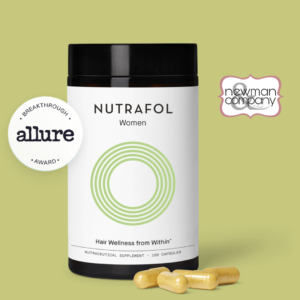No products in the cart.

Newman & Co Offering Nutrafol Vitamins!
Looking for a vitamin supplement that can improve your hair

If you want to improve your search engine optimization (SEO), then you need backlinks. Backlinks are links from another website to yours, and they can help drive relevant referral traffic to your website and boost the domain’s authority in the eyes of search engines. Here is a step-by-step guide on how you can get local backlinks for SEO:
1) Research the most popular websites that rank high for keywords related to your business or services, such as “local plumbers” or “local pizza delivery.” These are websites that you can potentially partner with to get backlinks.
2) Find out where those sites have linked externally from their site using a tool like Open Site Explorer or Ahrefs, which will show all external linking domains as well as anchor text of backlinks pointing to the site.
3) Before approaching them, make sure your website is nearly perfect. Once you start getting local links from high authority sites, it will benefit you and them in terms of SEO value.
What exactly is a local backlink?
A local backlink is a link from another website with the same geographical region or locality defined in its URL. For example, suppose your company’s primary target market is based in New York City, and you want to increase the number of organic links pointing at your site with “New York” as part of their anchor text. In that case, you should focus on finding local backlinks from credible websites with a “New York” URL.
What are the benefits of local backlinks?
Backlinks improve your site’s search engine rankings, increase brand awareness and authority in your city or region, and encourage trust among potential customers, which can lead to greater conversion rates and boost sales.
How Do Backlinks And Citations Differ?
Backlinks are links from other sites to your website, while citations are mentions of your business name and information on other local websites.
Citations are just as important, if not more so, than backlinks. They can improve your site’s search engine rankings by increasing the number of referring domains to it. They also give you more local authority because people trust other websites in their city or region over an unknown website based somewhere else on the other side of the world.
Your customers will feel more comfortable buying from a local business that they can find on their favorite review sites, directories, and social media platforms, as well as one with lots of positive reviews left by previous clients. There are several similarities between backlinks and citations. For instance, both help boost your site’s SEO, but the way it is done will be different.
Backlinks can be acquired by getting other websites to link to you based on keywords relevance. On the other hand, Citations will increase your ranking by increasing the number of referring domains pointing to your website that have mention of your business on them.
Where Should You Get Local Backlinks From?
Local backlinks can come from various places, and they should be created differently than usual SEO-focused links. For instance, if you are looking for backlinks from relevant websites in your locality, local citations with links to your website will work fine. However, if you want links with a geographic anchor text pointing at your site, you will need to partner with website editors or ask bloggers who blog about topics related to your industry.
Backlink Checker Tools: – Moz Link Explorer – Ahrefs Site Explorer – Open Site Explorer – Majestic
Sources:
https://moz.com/blog/what-is-a-local-backlink https://www.seochat.com/c/a/search-engine-optimization-help/getting-backlinks/ http://serps.com/library/localizing-your-backlinks/ http://www.problogger.net/archives/2013/04/28/how-to-get-local-backlinks-for-your-website
LOCAL LINK BUILDING STRATEGIES:
Create profiles on social media.
You can create a profile page for your business or brand on the most prominent social media platforms like Facebook, Twitter, and LinkedIn. This is where you share news about your company; promote special offers; conduct polls or surveys to gain insight into what people think of your products and services, and share industry-related content.
Take advantage of your business’s location.
Aside from creating a social media profile page, you can also link to pages on your website that have information about where you are located and why customers should visit or contact you regarding their needs/services.
Explore local business directories.
You can also create profiles on industry-specific sites, depending on the region of your service area. For example, if you are a plumber servicing customers in San Francisco, CA – Yelp or Thumbtack might be good places to build out your presence with information about yourself and your services. Additionally, you might find some directories that are specific to a particular industry in which you operate (i.e., “San Francisco Plumbing Services”). Those sites tend to have very high PageRank and link authority from Google because they are so closely tied with the search engine itself! This can be a golden opportunity to get very powerful links in multiple places all at once!
Explore local business directories.
If you’re not listed in the most popular online listings, then it’s time to get your company on some of them: Local, Yelp, Yellow Pages, Foursquare. You can also focus on specific industries or geographical locations by using directories that cater to your field.
If your product is for dog owners, look up the directory of every town with a pet park. If you’re offering yoga classes in Santa Monica, start searching “yoga” + “Santa Monica.” You can create hyper-targeted local links by finding directories relevant to what kind of business or location you want to rank for.
Find industry-specific directories.
Industry-specific business directories can be a valuable source of backlinks for SEO. One great directory is the Association of Pool & Spa Professionals, which offers an extensive list of pool and spa contractor associations in different states across the US.
Make sure that you submit your website to these directories only once (you might want to check what links are allowed and how many websites). Links from directories that have a lot of external links or are very popular can give your website an SEO boost. But it would help if you avoided anything that looks spammy because search engines might punish you for it. So be careful when using directories to get backlinks.
Engage local newspapers, forums, and community groups.
One of the best ways to tap into an established source of backlinks is by finding active forums or discussion boards related to your industry (your target keyword) and participating in them – this way, you’re not just asking for a link but offering helpful information as well. It’s also a great way to meet new people and build relationships.
A simple way to find forums in your industry is through Google; search for [your target keyword] forum, and you’ll be presented with a list of places where people in your niche share ideas. Sites like Reddit might also provide some great opportunities. Still, the discussions must be relevant and not deleted by moderators (the key here is to find forums that are still active and provide value).
Seek sponsorships.
One of the best ways to get high-quality backlinks is by offering your products or services for free. Sponsors are usually mentioned in articles, press releases, and other related documents that you can then publish on your website.
You can also write articles for local magazines, newspapers, and journals to gain links. Again, there are directories that you can find on the internet where you will be able to look for such opportunities. Besides press releases and sponsored posts, another great way of getting backlinks is by creating infographics or videos then submitting them to infographic submission sites or video submission sites.
Contact local bloggers or influencers.
Think about contacting local bloggers and influencers to feature your business if you know any in your area. You can also provide them with a perk for trading your product or service with them. In this way, they receive some rewards as well. These local link-building tactics are effective because they can increase your business’ visibility in your community and, in turn, reach more potential customers.
Keep an eye on your competitors’ backlinks.
There’s nothing wrong with following the competition and learning from them. Keep a close watch on their domain names, social media profiles, articles they publish in directories/online magazines, etc., to see if they have any links that you can use for your backlinks to your site.
Look for dead links.
Deadlinks are useless, and they will hurt your website’s SEO. Instead, you can find them using link checkers, like this one, or search with the “site:” operator on Google. With either of these tools, you can identify your competitors’ broken backlinks, reach out to the backlinking site’s point of contact, and share a link to similar content on your website that they can link to instead of fixing the broken link.
Update content regularly.
This is important to both users and search engines because it will provide them with value and keep your website relevant continue writing the following sentences of the blog post content. Do not write numbers or bullet points.
This is where you share news about your company; promote special offers; conduct polls or surveys to gain insight into what people think of your products and services, and share industry-related content. If you’re not listed in the most popular online listings, then it’s time to get your company on some of them!
For example, suppose you’re a marketing professional; in that case, it makes sense to focus on getting listed with top directories specific for this field, like Online Marketing Institute and Search Engine Journal.
Make sure your website is mobile-friendly or at least has an option for users to switch over to their preferred device (e.g., desktop computer, smartphone).
For example, if someone searches in Google using their phone, they are looking for information immediately. They don’t want to wait while your website loads, which is one of the top reasons people bounce from a page.
Other strategies:
Contact us by calling (214) 531-3979 or visit our website to get in touch with a member of our team:

Looking for a vitamin supplement that can improve your hair

If you’re like most people, you have a lot of

If you’re like most people, you probably have a lot

Dallas | Decatur | Sacramento | Carson City | San Diego | Niles | Maui | Boise | Reno | San Antonio | Austin | Burke | Houston
© 2023 Alpha Media Group. All Rights Reserved.